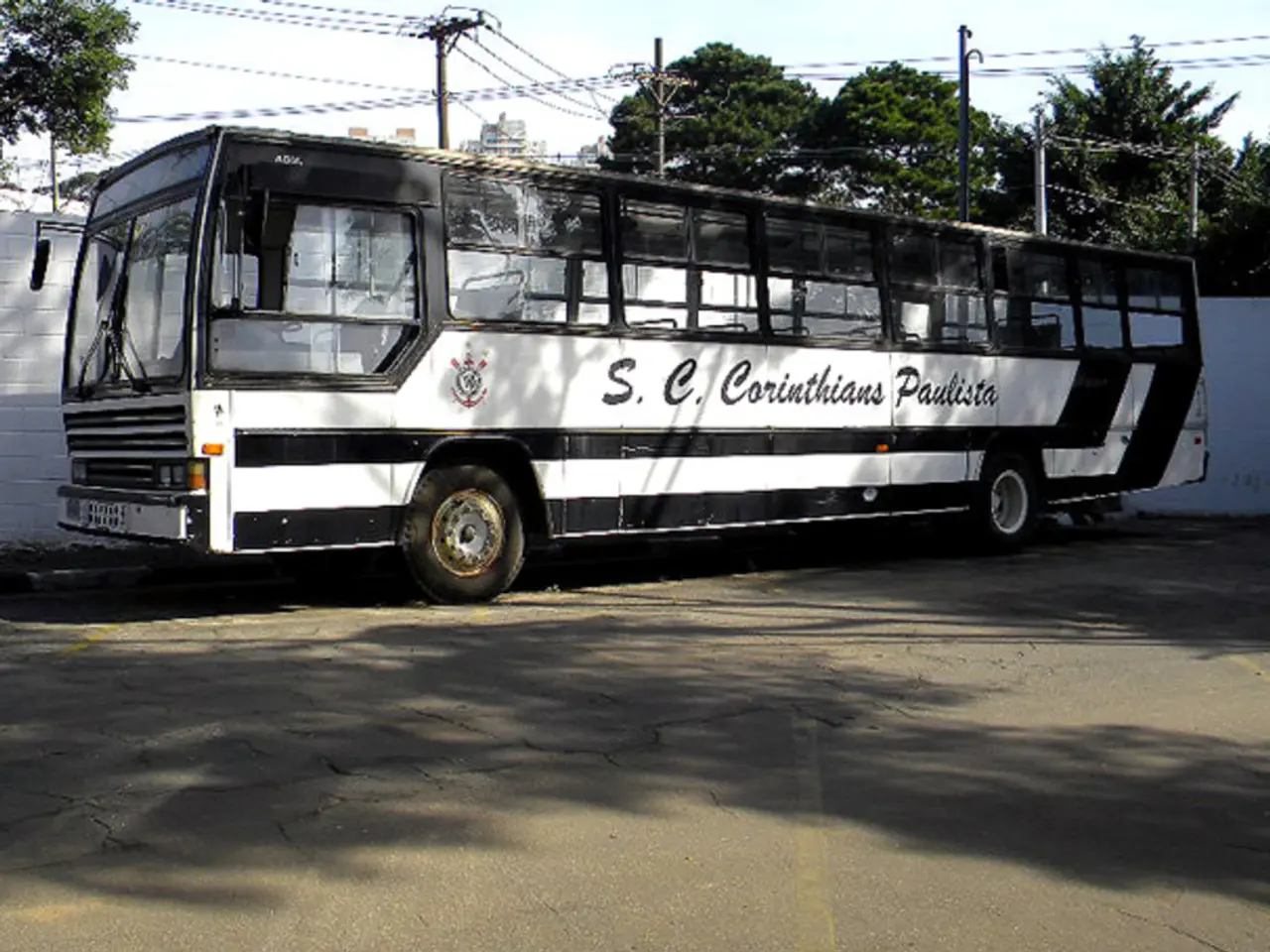Electric bus with a 60-foot length makes its debut in Winnipeg, Canada
Winnipeg Transit has taken a significant step towards a greener future with the introduction of its first zero-emission buses, funded by the Investing in Canada Infrastructure Programme (ICIP).
The programme, which provides funding for infrastructure projects across Canada, has allocated up to CAD 280.3 million to Winnipeg Transit to support the purchase of 90 Zero-Emission Buses (ZEBs). The transition to zero-emission buses is a crucial part of the ICIP's commitment to reducing greenhouse gas emissions and improving air quality.
The Transition to Zero-Emission Bus Programme in Winnipeg includes a variety of buses. There are 4 each of 40-foot and 60-foot fuel-cell battery-electric buses, and 4 each of 40-foot and 60-foot battery-electric buses.
The first new bus under the programme, a 40-foot fuel-cell battery-electric vehicle, was introduced at the Fort Rouge Garage at the end of January. This type of bus refuels with hydrogen and operates for up to 24 hours, providing an operating time approximately double that of battery-electric buses, which recharge via an electrical connection and operate for 10 to 15 hours.
Each bus under the programme is estimated to reduce greenhouse gas emissions by around 62 tonnes per year. Data collected from these operations will help inform decisions on future fleet electrification in Winnipeg.
All new buses undergo both in-service and out-of-service testing in Winnipeg. Factors considered during these assessments include battery health, energy consumption, operating costs, and the performance of each zero-emission technology in Winnipeg's climate.
This week, Winnipeg is introducing a 60-foot zero-emission electric bus into passenger service, making it the first Canadian city to do so. Besides Winnipeg, Canadian cities that have deployed 60-foot low-emission electric buses in their public transit systems include Vancouver. The region of Metro Vancouver operates various public transit modes, including buses, and has been actively incorporating electric and low-emission vehicles.
A second order of 24 zero-emission buses is scheduled to arrive in early 2026. With these additions, Winnipeg Transit is well on its way to a greener and more sustainable public transit system.
Read also:
- Nightly sweat episodes linked to GERD: Crucial insights explained
- Antitussives: List of Examples, Functions, Adverse Reactions, and Additional Details
- Asthma Diagnosis: Exploring FeNO Tests and Related Treatments
- Unfortunate Financial Disarray for a Family from California After an Expensive Emergency Room Visit with Their Burned Infant




